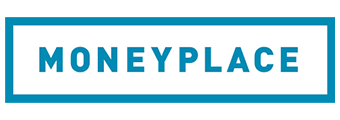What is a used car loan?
A used car loan is a personal loan that you can use to purchase a vehicle with a few years of mileage on it. Many lenders offer special products specifically for buying used cars, with the vehicle as security. You could also use an unsecured personal loan to buy a used car, but the interest rate will likely be higher.
Car loan lenders usually have an upper limit for how old the vehicle can be. New car loans generally require the vehicle to be three years old or younger, while used car loans might allow up to 12 years - certain lenders even have no upper age limit.
However, given the higher risk for lenders (due to the vehicle's potentially lower resale value), used car loans generally have higher interest rates than equivalent products for new vehicles.
Used car loan interest rates
Given the higher risk for lenders, used car loans generally have higher interest rates than equivalent products for new vehicles. If the borrower defaults and the vehicle is repossessed, the lender may struggle to recoup the outstanding balance due to the used car's lower resale value.
Additionally, there tends to be a higher chance of older vehicles breaking down, becoming inoperable, or becoming a repairable write-off, so there are often higher rates charged to compensate for this risk.
Compare used car loans
There are several things to keep in mind when choosing between used car loans.
Interest rates
The interest rate you'll pay on your car loan is likely your primary concern. Car loan rates can vary widely, so it pays to do a bit of research to find lower rates. Used car loans can have variable rates, although fixed interest is a bit more common.
Many car loan products don't have a single advertised rate, but a range - where you end up on that range largely depends on your credit history, as well as the age and condition of the vehicle you're buying.
Fees
Used car loans often have extra fees on top of your interest bill. You might need to pay fees for the loan application, establishment and servicing, as well as charges for paying it off early or missing repayments.
These fees can add up, so it's worth taking the respective extra charges on various loan products into account. The comparison rate is a good way to quickly compare the true cost of different loans.
Borrowing power
Most used car loan lenders have a minimum and maximum amount allowed. This often ranges from $5,000 to $150,000. However, if you're looking for a very small loan for your used car, some lenders might decline your application as the administrative and regulatory costs outweigh the benefits. For very large loans, on the other hand, expect lenders to scrutinise borrower capacity or the value of the vehicle more strictly.
Loan term
Car loan terms typically range from one to seven years. Longer terms can mean lower repayments, but a larger overall interest bill over the life of the loan.
The age of the used car can affect the loan terms available to you. Lenders may impose an upper limit on the car's age at the end of the loan term, often 12 years. That means if you're buying a car that's seven years old, you'll only be able to borrow for up to five years, even if the lender offers seven-year terms.
Extra features
Many loan products offer additional features to entice borrowers. This might include free and unlimited extra repayments or a redraw facility that lets you take out anything you've paid above the minimum.
It's also common for car loans to include a balloon payment. This basically means that instead of splitting the entire amount over the term, you pay back a lump sum (typically 30%-50%) at the end. This lowers your regular repayments, although since you're still charged interest on the balloon amount, it can be more expensive overall.
Balloon payments can be great if you plan on selling the car before the end of the loan term - you can use the proceeds of the sale to pay off the balloon amount. However, you'll want to make sure you can cover the residual amount; it can be quite a shock if your car sells for less than what you still owe and you don't have the extra cash to pay for it.
How to apply for a used car loan
Applying for a used car loan in Australia is pretty straightforward. Preparing properly may improve your chances of approval and help you secure a good deal. Here's how.
1. Check your credit score
Your credit history plays a big role in the rate you'll be offered. Before applying for a used car loan, it would be beneficial to find out your credit score to get an idea of the rate you might be offered or whether you'd get approved for a car loan at all. In Australia, you can request a free credit report from providers like Equifax, Experian, or illion.
2. Work out your budget
Decide how much you can realistically afford to borrow. Factor in not just the purchase price, but also registration, insurance, fuel, and ongoing maintenance. Use a car loan repayment calculator to see what your monthly payments would look like.
Work out the estimate of your car loan repayments: InfoChoice Car Loan Calculator
3. Get pre-approval
Pre-approval (also called conditional approval) gives you an estimate of how much you can borrow. This helps you shop with confidence and negotiate with sellers or dealerships, knowing your budget. Pre-approval typically lasts 30-90 days.
4. Choose your vehicle
Once you've found the car, your lender will want details like the make, model, year, VIN (Vehicle Identification Number), and purchase price. If buying privately, you may also need a roadworthy certificate and PPSR check to ensure the car is not stolen, written off, or under finance.
5. Submit your loan application and supporting documents
Depending on the lender, you can apply in person or online via their website. Fill out the application form and submit it with the required documents.
Lenders typically ask borrowers to provide proof of identification, proof of income, proof of residency, bank statements, and vehicle details. They may also want to see proof of comprehensive car insurance.
6. Sign the loan contract
If approved, your lender will send you a loan contract. Read the terms carefully, paying attention to fees, repayment conditions, and balloon payment clauses.
Is buying a used car a good idea?
Buying a used car can be a cost-effective way to own your set of wheels. Vehicles generally depreciate quite quickly - new cars can lose more than 10% of their value the second they leave the showroom, while it's normal for a further 10-15% depreciation over the first year. By waiting just a few years into a car's life cycle, you might be able to get basically the same ride for a fraction of the price.
On the other hand, there are risks to buying second-hand. Older cars can be more susceptible to engine problems and other issues. Major services tend to happen around the 100,000-kilometre mark. This might mean an expensive trip to the mechanic, not to mention the inconvenience of a breakdown.
All of this can also make it easier for your vehicle to be written off by your insurer in the event of a crash, potentially leaving you out of pocket between the insurance payout and what's owed to the lender. The extra risk can also mean it's more expensive to insure older vehicles, not to mention the higher interest rate.
Where to buy: Dealership vs Private Sale
When buying new cars, you're generally restricted to dealerships or direct via the manufacturer, but if you're buying second-hand, your options might lean more towards private sellers. Used cars are frequently advertised on platforms like CarSales, Facebook Marketplace, or Gumtree, and you might be able to find better deals by avoiding dealers.
However, buying privately also means you need to be careful of scammers, not to mention dodgy vehicles. You should make sure the vehicle you're looking at has up-to-date roadworthy certificates and is mechanically sound before you hand over anything.
It's also worth checking whether there are any encumbrances on the car using the VIN in a PPSR check. This ensures you aren't buying a vehicle that's been stolen, written off, or encumbered by an outstanding loan.














